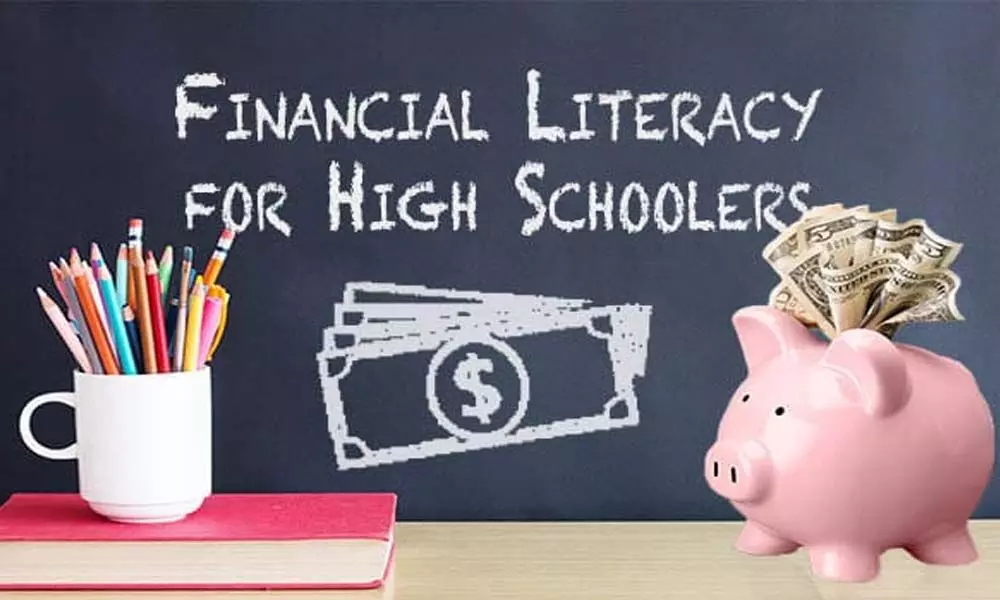Make students financially literate

Financially Literacy for Students
Undoubtedly, young people need to learn about personal finance and be financially literate.
Undoubtedly, young people need to learn about personal finance and be financially literate. In the case of India, we are close to 80 per cent literacy but when it comes to financial literacy the scenario is different. National Centre for Financial Education in 2019 conducted a survey and said that only 27 per cent of Indians are financially literate.
This means, we have to go a long way to make India financially literate and this can be done only if the teens are made financially literate at the school itself. This can be done either by introducing financial literacy at the school level. It is necessary to provide financial education to the young minds of the nation, which is a basic life skill that has a direct impact on personal well-being. Financial Literacy is defined as a combination of financial awareness, knowledge, skills, attitude and behaviour necessary to make sound financial decisions and ultimately achieve individual financial well-being (OECD, 2012).
Learning personal finances and important money skills at an early age will provide a lot of opportunities to young minds to apply them in the real life.
In fact, those who understand how money works can start earning and investing at an early age and avoid lifelong money struggles. Teaching the young minds, the basics like money management, savings, investing and debt lays a strong foundation for money habits. This can be done by using relevant examples in the class and throwing some light on the core concepts related to financial learning so that they can make financially responsible decisions.
Some basic concepts are:
Budgeting: The first thing you need to do is make a budget. Your income and expenses, you need to put them together and that is called a budget. There's nothing difficult about a budget. It is simply a comparison of income and expenses. There are many software applications available to make this job a piece of cake.
Emergency fund: Along with budgeting, teachers should make people aware of emergency funds, how and when the emergency fund can help them at the time of emergencies. A financially educated person understands the importance of an emergency fund. The ongoing situation in which the COVID-19 pandemic has not only endangered millions of lives around the globe but has also plunged many people into the financial crisis teaching us the importance of being financially prepared. The scenario has made us realize that at any point of time in life, people must have three to four months of expense set aside as savings. It is a decisive way to avoid debt.
Understanding debt and its management: Make students/young minds understand the concept of cash flow, taxes and how debt and how it works as it will help them in planning their finances better. Teachers should teach young minds the difference between good debt and bad debt, which will help them to recognize the difference between appreciating and depreciating assets and this will help them to grow their wealth. For instance, a housing loan would help a person to save taxes, create an asset that will appreciate over time. The house will potentially yield a cash flow in the form of rent. However, debt in form of a car loan would drain you financially in different ways like recurring petrol expenses, insurances, and depreciating value over time.
Retirement plan: Social security is not available to the younger generation in a developing country like India. So, young minds should be made aware of some factors like saving and investing in secured measures so that they can live comfortably after retirement. The teachings may help the young ones to save and invest as soon as they start earning. One should earn financial freedom.
















